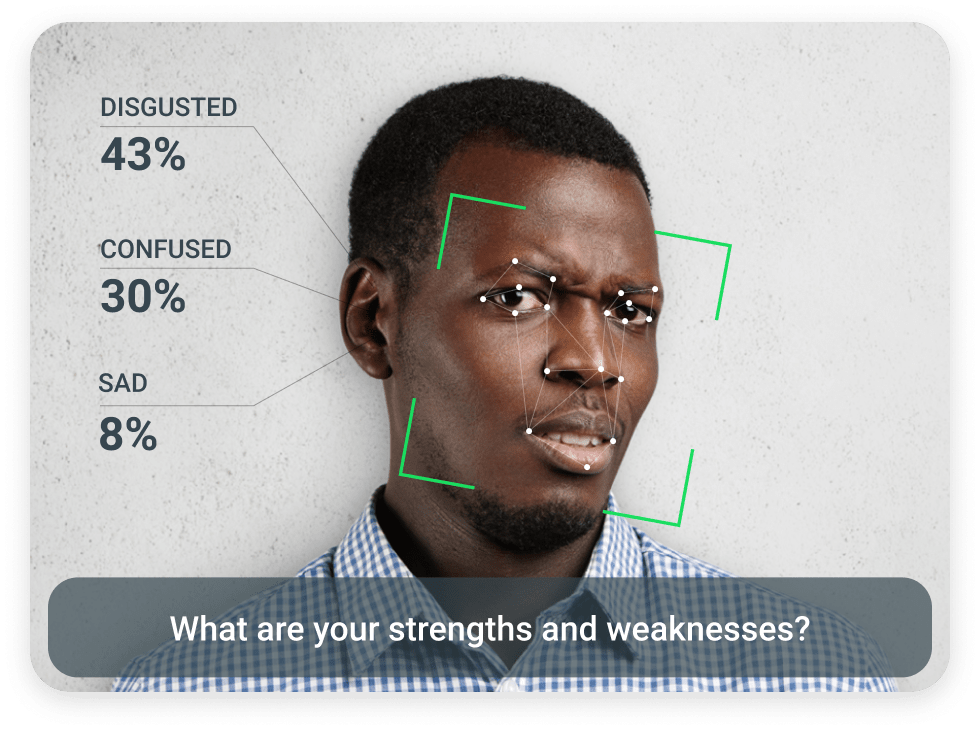How emotional analysis accelerates candidate selection
Six Ways Emotional Analysis Can Accelerate Candidate Selection
The advances that technology has made over the years have significantly changed how many fields, including the field of human resources, work. Companies are now hiring the right candidates using new methods, such as the use of emotional recognition technology applied to recorded interviews. You can tell which the strongest emotions of a candidate are during a video interview through the application of this new tool.
Keep reading to learn six ways in which emotional analysis can accelerate candidate selection.
Make Informed Decisions
The chances are that you have hundreds of skilled employees in your system working for you, but different tasks usually require specific personalities to handle them. Finding the right personality can be hard during an interview because it’s not always easy to tell the emotions of an interviewee. Fortunately, when you integrate emotional analysis technology into your video interview, it can help you identify the right person for the job.
For instance, if you have tasks that involve dealing with consumers in the field, you want a candidate who is empathic and positive. The emotional analysis tool can help you find this candidate within a shorter period. Making data-driven decisions can save you from working with unqualified people.
Emotional recognition technology is based on machine learning to make work more manageable. All you need to do is supply a video to it for the analysis to begin.

Find Employees Who Can Work in a Team
Many company tasks require employees to work as a team. However, some individuals prefer and are more productive when working alone. Emotional analysis can help you learn how a candidate would respond when they are asked to collaborate with others.
As a result, you will be able to narrow down your candidate list to those who value teamwork and this way, you can rest assured that the employees will respect each other’s ideas while working together. Research has shown that emotionally intelligent employees can result in better teamwork because they are aware of how their emotions affect other people and are good at communication.
Know Your Candidates Better
 A candidate can walk into your office, read the atmosphere, and blend in seamlessly. This means that they can tell you what you want to hear and show you what you want to see. However, the emotional analysis tool can help you know your candidates better because emotions don’t lie.
A candidate can walk into your office, read the atmosphere, and blend in seamlessly. This means that they can tell you what you want to hear and show you what you want to see. However, the emotional analysis tool can help you know your candidates better because emotions don’t lie.
It is essential to ask unexpected questions during the interview to get better results. For example, you can ask how they have ever handled a situation where they were unfairly criticized. This can help you analyse a candidate’s self-awareness and ability to bounce back after a hard time. Also, you can ask them to describe their busiest day of the week to gauge their stress tolerance.
Moreover, you can ask about how they have helped someone in need in the past to learn about how empathic they are. Therefore, you need to be strategic when writing down your interview questions because the questions should provoke the candidate to respond from an emotional place. A recruitment agency can help you come up with these as they can create specific questions that can bring up emotions related to your business field.
You should choose candidates with a high level of self-recognition. Those who know how to manoeuvre setbacks, and respond to situations calmly. However, the right emotions to look out for will depend on the job you are hiring for. An emotion that is considered vital in one field may be a weakness in another. Moreover, you need to take time analysing the results to select candidates who suit the job vacancy that you have open.
Get Unbiased Results
 Emotional recognition tools are designed with advanced artificial intelligence (AI) technology that guarantees unbiased results. Various factors can lead to mistakes during physical interviews. For example, an employer may disqualify a potential candidate due to a simple mistake like showing signs of unhappiness. This may be due to physical discomfort or other problems, and not be a personality issue, but rather a temporary physical problem.
Emotional recognition tools are designed with advanced artificial intelligence (AI) technology that guarantees unbiased results. Various factors can lead to mistakes during physical interviews. For example, an employer may disqualify a potential candidate due to a simple mistake like showing signs of unhappiness. This may be due to physical discomfort or other problems, and not be a personality issue, but rather a temporary physical problem.
Fortunately, AI can read an interviewee’s real emotions, helping you make unbiased decisions. Also, it can allow you to note people who are acting by giving fake emotions during the interview.
Hence, emotional analysis can help many businesses avoid bad hires. A significant percentage of bad hires are usually convincing and charming during interviews. But once they start working, they show their true personalities. A bad hire can cost your business substantially, including your finances and reputation. Thus, if you can tell the genuine emotions of applicants, you will be able to choose candidates who deserve the position.
Additionally, “yes people” can tempt employers to make unbiased results. This is because they can agree with everything you say during an interview, and not offer a different opinion. However, they may not necessarily agree with your visions, but simply want a source of income, hence they do everything to impress you.
Selecting such a candidate is not fair because you may be leaving out someone with great ideas who can really benefit your company. The fact that emotional recognition systems can help employers avoid these mistakes is amazing.
Make Work Easier
Your HR team are possibly some of the busiest people in the company. In addition to the numerous tasks they are responsible for in day-to-day operations and personnel, they are also responsible for the entire interview process. Placing the vacancy ad, interviewing candidates and making a final decision. The interview process can be overwhelming because they have to sit down with hundreds of applicants to narrow it down to a few.
This process can be time-consuming and can take attention away from their other duties. Therefore, it’s important to find ways to make work more manageable for your HR team, and using an emotional analysis tool is one of them. This is because the tool will help HR personnel select candidates who have the required emotions at the video interview stage, and they will only need to physically meet a few candidates for second interviews. According to Vox, AI can not only save your HR department time, but also predict the right person for the job even more accurately than a human can.
Additionally, they don’t have to spend hours with a candidate trying to learn their personality because the tool will present all the needed information. However, you should ensure that your HR team goes through basic training to learn the best ways to use the tool to allow them to get to know their way around it quickly.
Keep Your Business Going
A recruitment process that takes a long time can delay your business operations, especially if you need to fill a position urgently. When the process is shortened through the use of emotional analysis, the new candidate can start working immediately, which means your business operations won’t be interrupted.
Furthermore, since you will know the strongest emotions of the candidates, your task allocation process will be quicker as you can tell the best duties for a particular employee. For example, candidates whose results showed they have a high-stress tolerance can handle more complex tasks.
Emotional analysis during candidate selection is gaining popularity as the years go by. Most employers are now opting to use advanced tools to learn more about the emotions of their applicants. According to the [Financial Times] (https://www.ft.com/content/2731709c-3043-11e9-8744-e7016697f225), this helps to reduce the chances of making unbiased decisions and allows employers to get the best hires. Therefore, it is vital to allow your HR to recruit people using video interviews integrated with an emotional recognition tool.
